Professor Ian Ford
University College London
Department: Physics & Astronomy
Institution: UCL
Email: i.ford@ucl.ac.uk
Phone: +44 (0)20 7679 7136
Website: https://www.ucl.ac.uk/physics-astronomy/people/professor-ian-ford

Research summary
See Professor Ford’s Research Highlights here:
Nonequilibrium thermodynamics of stochastic systems with odd and even variables
General interest in kinetic processes and their basis in statistical mechanics and master equations.
The atmosphere is loaded with tiny suspended particles called aerosol, ranging in size from nanometres to micrometres, and consisting of a great variety of materials. The main strand of my research centres on understanding the origins of these particles. Many are formed by condensation of gas phase precursors, by a process called nucleation. Each particle starts out as a cluster of molecules, and the stability of these clusters is key to their rate of formation. However, this stability defies all textbook material properties, since the clusters are so small. Developing theoretical models of clusters is therefore key to making progress.
My theoretical work on the nucleation of phase transitions applies to other areas too, including protein aggregation, biomolecular structural changes, colloidal crystallisation and even stock market dynamics. A particular application here is the behaviour of the nuclear pore complex, a structure that operates as a discriminatory gateway between nucleus and cytoplasm.
I also take an interest in the fundamental nature of irreversible processes, of which nucleation is an example, and in particular the concept of entropy generation. This has included work on stochastic thermodynamics and fluctuation relations that emerge in models described by particle velocities and positions, an example of which is thermal conduction.
I work with the Department of Physics and Astronomy and the London Centre for Nanotechnology at UCL.
Keywords
Aerosols, Entropy Production, Fluctuation Theorems, Nucleation, Doi-Peliti-Cardy Theory, Grand Canonical Monte Carlo, Transfer Matrix Methods, Jarzynski Equality, Stochastic Mathematics
